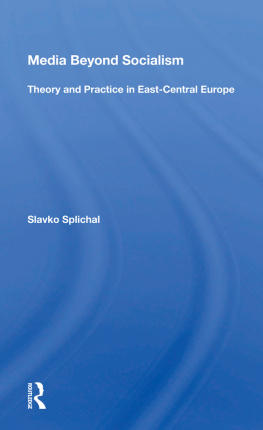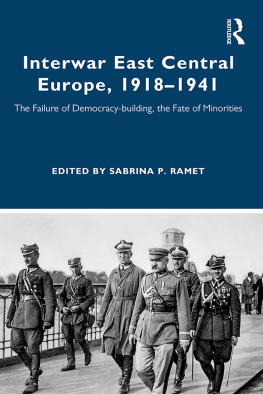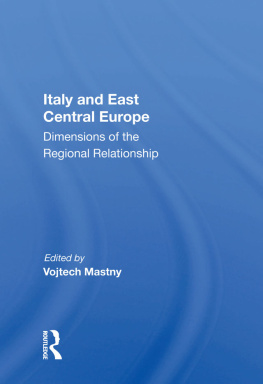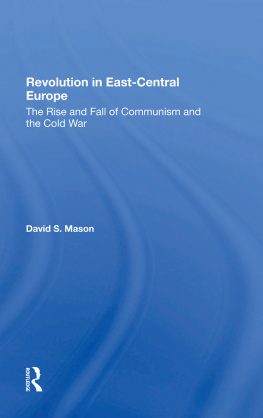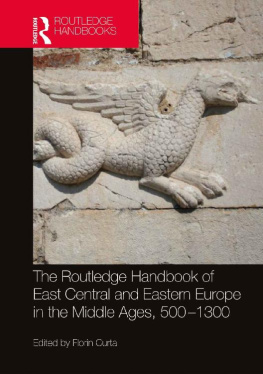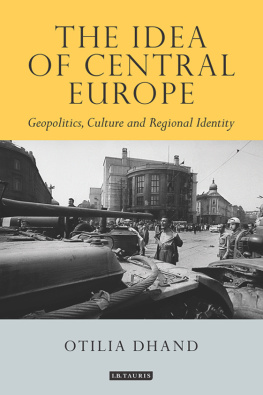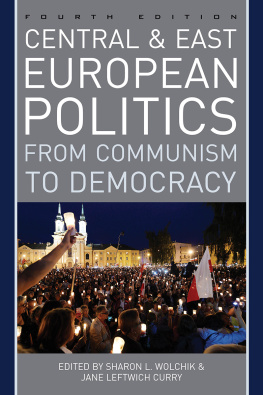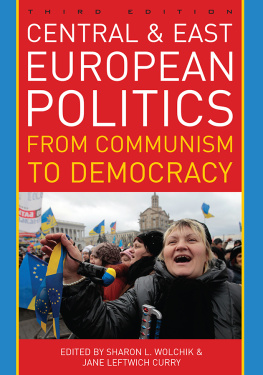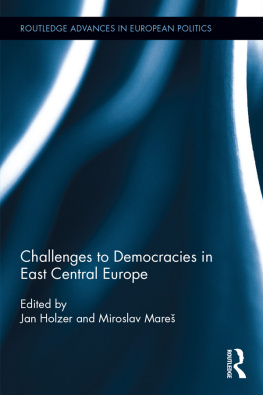RE-CONTEXTUALISING EAST CENTRAL EUROPEAN HISTORY
NATION, CULTURE AND MINORITY GROUPS
Legenda
LEGENDA, founded in 1995 by the European Humanities Research Centre of the University of Oxford, is now a joint imprint of the Modern Humanities Research Association and Routledge. Titles range from medieval texts to contemporary cinema and form a widely comparative view of the modern humanities, including works on Arabic, Catalan, English, French, German, Greek, Italian, Portuguese, Russian, Spanish, and Yiddish literature. An Editorial Board of distinguished academic specialists works in collaboration with leading scholarly bodies such as the Society for French Studies and the British Comparative Literature Association.

The Modern Humanities Research Association (MHRA) encourages and promotes advanced study and research in the field of the modern humanities, especially modern European languages and literature, including English, and also cinema. It also aims to break down the barriers between scholars working in different disciplines and to maintain the unity of humanistic scholarship in the face of increasing specialization. The Association fulfils this purpose primarily through the publication of journals, bibliographies, monographs and other aids to research.

Routledge is a global publisher of academic books, journals and online resources in the humanities and social sciences. Founded in 1836, it has published many of the greatest thinkers and scholars of the last hundred years, including adorno, einstein, Russell, Popper, Wittgenstein, Jung, Bohm, Hayek, Mcluhan, Marcuse and Sartre. Today Routledge is one of the world's leading academic publishers in the Humanities and Social Sciences. It publishes thousands of books and journals each year, serving scholars, instructors, and professional communities worldwide.
www.routledge.com
Editorial Board
Chairman
Professor Colin Davis, Royal Holloway, University of London
Professor Malcolm Cook, University of Exeter (French)
Professor Robin Fiddian, Wadham College, Oxford (Spanish)
Professor Paul Garner, University of Leeds (Spanish)
Professor Andrew Hadfield, University of Sussex (English)
Professor Marian Hobson Jeanneret,
Queen Mary University of London (French)
Professor Catriona Kelly, New College, Oxford (Russian)
Professor Martin McLaughlin, Magdalen College, Oxford (Italian)
Professor Martin Maiden, Trinity College, Oxford (Linguistics)
Professor Peter Matthews, St Johns College, Cambridge (Linguistics)
Dr Stephen Parkinson, Linacre College, Oxford (Portuguese)
Professor Suzanne Raitt, William and Mary College, Virginia (English)
Professor Ritchie Robertson, St Johns College, Oxford (German)
Professor Lesley Sharpe, University of Exeter (German)
Professor David Shepherd, Keele University (Russian)
Professor Michael Sheringham, All Souls College, Oxford (French)
Professor Alison Sinclair, Clare College, Cambridge (Spanish)
Professor David Treece, Kings College London (Portuguese)
Managing Editor
Dr Graham Nelson
41 Wellington Square, Oxford ox1 2JF, UK
legenda@mhra.org.uk
www.legenda.mhra.org.uk
First published 2010
Published by the
Modern Humanities Research Association and Routledge
2 Park Square, Milton Park, Abingdon, Oxon OX14 4RN
711 Third Avenue, New York, NY 10017, USA
LEGENDA is an imprint of the
Modern Humanities Research Association and Routledge
Routledge is an imprint of the Taylor & Francis Group, an informa business
Modern Humanities Research Association and Taylor & Francis 2010
ISBN 978-1-906540-87-6 (hbk)
All rights reserved. No part of this publication may be reproduced, stored in a retrieval system, or transmitted in any form or by any means, electronic, mechanical, including photocopying, recordings, fax or otherwise, without the prior written permission of the copyright owner and the publisher.
Product or corporate names may be trademarks or registered trademarks, and are used only for identification and explanation without intent to infringe.
Robert Pyrah and Marius Turda
The need to address East Central European history in its manifold complexity remains as acute today as for previous generations of academics. East Central Europe is a region forged in diversity. Historic entities like the PolishLithuanian Common wealth, the Rzeczpospolita that lasted from 1505 to 1795, or Habsburg-administered Galicia (17721918, now Southeast Poland/West Ukraine), together with areas like Transylvania, the Banat, the Sudetenland, or South Tyrol, embody and symbolize the simultaneously entwined but intractably difficult nature of the regions multiple legacies: religious, cultural, ethnic, linguistic. The radical refashionings of that mosaic during the twentieth century add further layers of complexity. The two world wars, in which the region served as the primary trigger and a principal theatre of conflict, Second, through the Yalta agreement of 1946 that saw further radical redrawings of the territorial, political, and ethnic map and the imposition of communism. The final significant upheaval came in 1989, with the end of communist rule in Europe and the reassertion of independent democracies run along broadly nationalizing lines.
Some two decades after the fall of communism, conceptual narratives on the region that attempt to map overarching processes, such as Larry Wolffs magisterial Inventing Eastern Europe
A number of recent works have begun to prise open this range of concerns. Promoting an eclectic methodology, one which credits comparative models as
In a similar vein, other works have deliberately shifted focus from the centre to the periphery, for instance Rogers Brubaker et al.s work Nationalist Politics and Everyday Ethnicity in a Transylvanian Town ,
Purpose and Scope
This volume therefore builds on these developments in research, in particular the trend towards theme-based understandings of history that cut across time periods, national-historical narratives, and geographies. Its central aim is to establish synergies between history, literature, linguistics, and anthropology from an inter disciplinary perspective. The ultimate purpose of offering to the public yet another volume on East Central Europe is to encourage a more sensitive approach to a region in Europe, which during the nineteenth and twentieth centuries has frequently, in Karl Krauss memorable words about Vienna, been considered an experimental station for the end of the world. Not surprisingly, in a recent study Lonnie Johnson did not hesitate to declare Central European history epic and tragic; this is a region where


